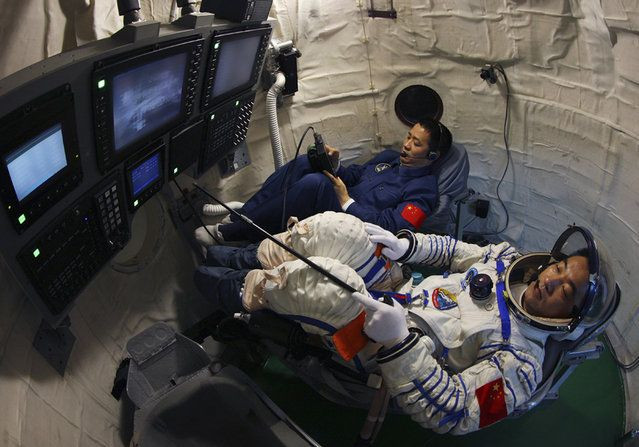Space Travel Could Wreak Havoc On Your Immune System: Flies Raised On Space Station More Susceptible To Fungi

It’s no secret space exploration can have a damaging effect on the physical health of astronauts, in particular, respiratory viral infections. So, why does space flight have such a compromising effect on immunity? A recent study out of the University of California, Davis, found that Drosophila flies that were raised on the Space Shuttle Discovery suffered from a weakened immune system after returning to Earth. Drosophila flies were chosen for this study because they share many fundamental characteristics of their immune system with mammals, including mice and humans.
Lead researcher Deborah Kimbrell and her colleagues from the Department of Molecular and Cellular Biology in the UC Davis College of Biological Sciences sent fly eggs, which take around 10 days to develop into adults, on a 12-day mission aboard the Space Shuttle. To understand the relationship between gravity and immunity, the research first used an increase in gravity, or hypergravity, and the decreased gravity of spaceflight, also known as microgravity. Upon arriving back to Earth, researchers tested each fly for responses to two types of infections. The first infection was a fungus, in which a fly can only fight off through a pathway mediated by proteins in its immune and digestive systems, also known Toll-like receptors.
The discovery of Toll receptors earned the 2011 Nobel Prize for Physiology and Medicine. The second infection, a bacterial infection, can only bed resisted through a gene called Immune deficiency (Imd). Although the research team deemed the Toll pathways in the space-raised flies “non-functional,” the majority of flies exhibited a sizeable response through the Imd pathway. The research team also tested the flies in a centrifuge — a machine that simulates gravitational forces that is over 20 times the normal force of Earth’s gravitational pull — to assimilate hyperactivity conditions. Under these conditions, each fly’s resistance to the fungus improved. Researchers hope that future spacecrafts will include centrifuges that can help astronauts with maintaining their bone and muscle strength as well as keeping their immune system healthy.
Kimbrell gave two hypotheses explaining how microgravity could have affected the Drosophila flies’ immune system: first being that heat-shock proteins, proteins that are produced in response to physiological stress, were able to bind with the Toll receptors. The second theory contends that microgravity interferes with the behavior of proteins outside of cells, which would involve Toll receptor signaling as well. Future studies will hopefully include humans and flies for testing trials aboard the International Space Station.
A similar study out of the University of Arizona found that space travel can negatively impact our health by changing the activity of genes, which control immunity responses and stress. The research team headed up by immunobiologist Ty Lebsack tested the health of four mice that had spent 13 days aboard the Endeavor Space Shuttle by studying their thymus gland, the organ responsible for producing T cells, an important part of the immune system. Each mouse had around 12 up or down-regulated genes in their thymus tissue by the end of the study.
"Taken together, our results hint at the possibility that an astronaut's immune system might be compromised in space," said Lebsack of the UA's department of immunobiology in the College of Medicine. "The altered genes we observed were found to primarily affect signaling molecules that play roles in programmed cell death and regulate how the body responds to stress."



























